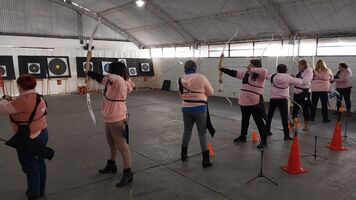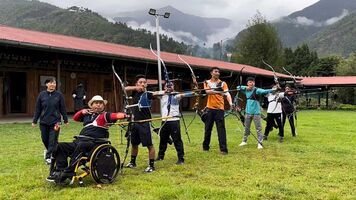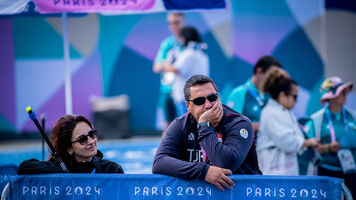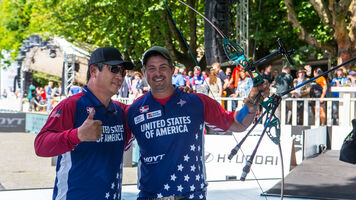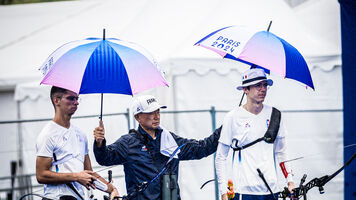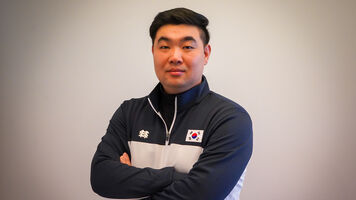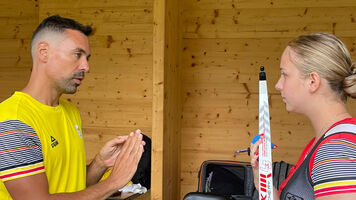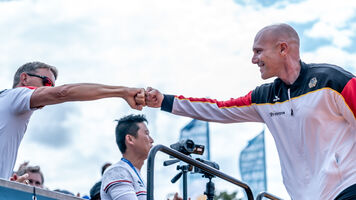Rio 2016 from an Olympic coach’s perspective
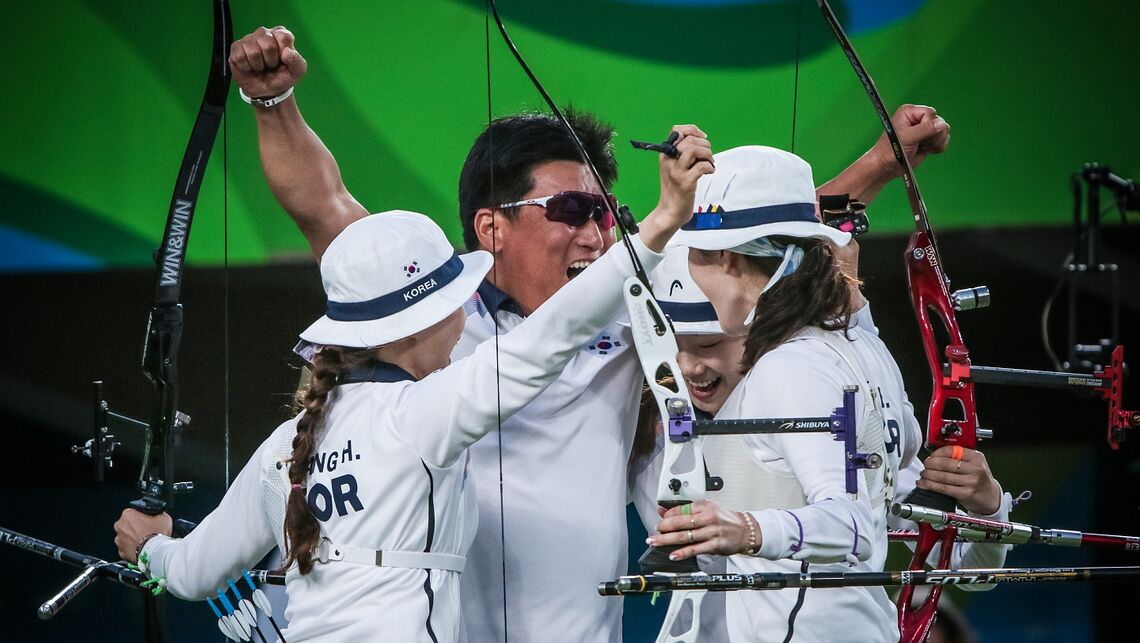
At the Games, archers get the attention because, after all, they are the Olympians, the stars, the winners – and the best of the best in the sport. They train, compete, celebrate and, of course, react when things don’t go to plan.
But there’s someone else who, in silence, lives those feelings, standing behind the athlete on the shooting line. It’s the coach. A person that places a critical role in the competition process, at the Olympic Games as in any other competition.
Here’s what five Olympic coaches thought of their Games experience…
Trust
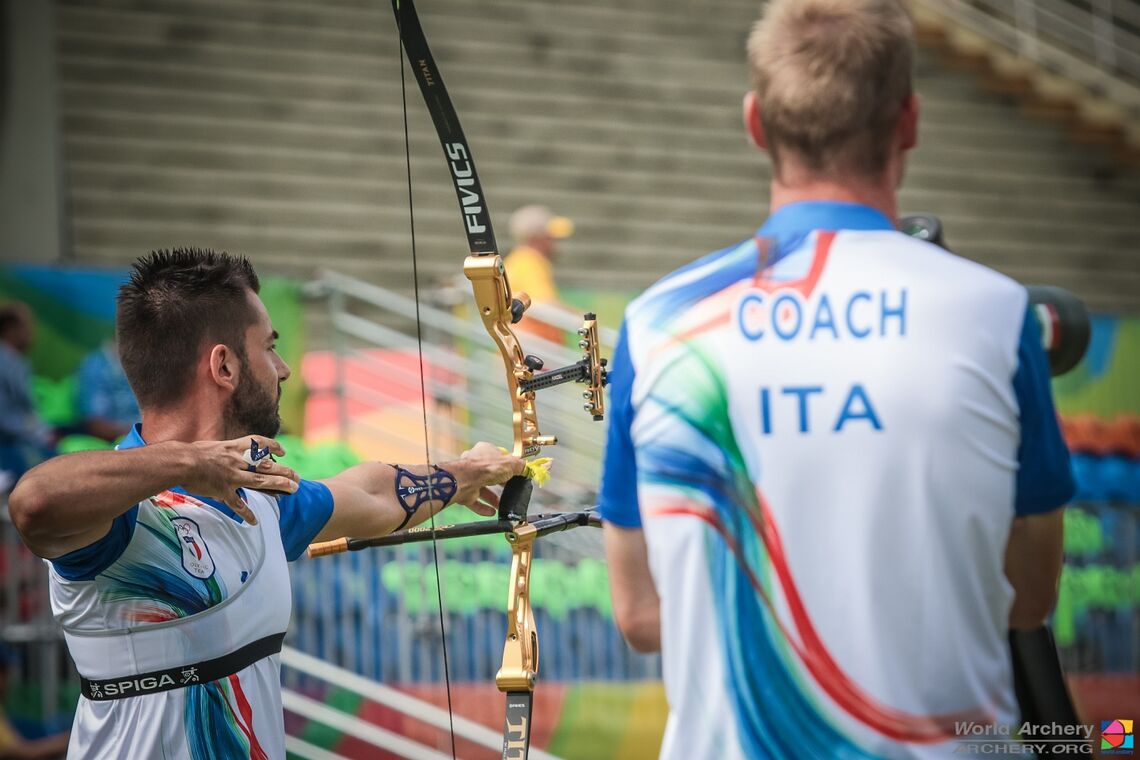
Wietse van Alten is a bronze medallist from Sydney 2000. He travelled to Rio as the head coach of the Italian team, which has a full team of six athletes competing, three men and three women.
The most important thing between a coach and an athlete, said Wietse, is trust. If this doesn’t exist a coach could try everything he or she considers is good for the archer, but things would never work.
And from that trust comes confidence, something Wietse believes is necessary if an athlete wants to win.
“To win a medal takes confidence in all the hard work the archer has done. It takes a lot of enjoyment as well because you need to enjoy what you do to do it well,” he said.
mental condition
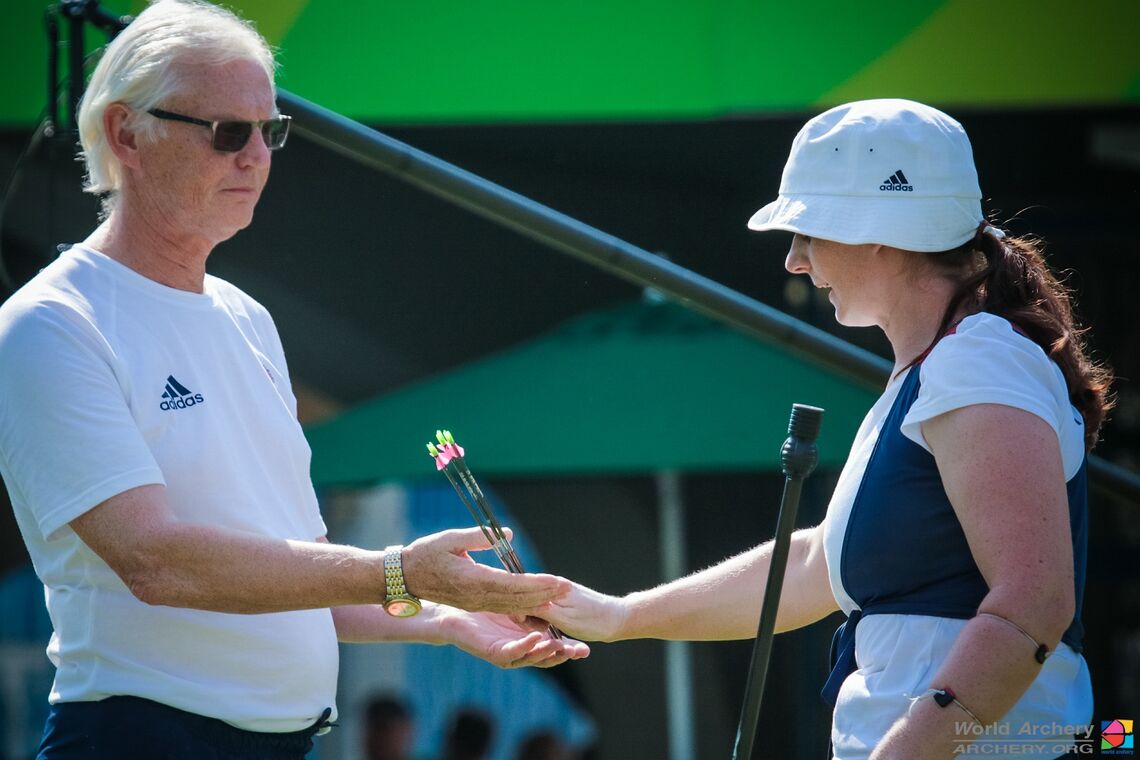
Two-time Olympic team bronze medallist Richard Priestman looked after Britain’s Naomi Folkard and Patrick Huston at Rio 2016. Now as a coach, he lives the Games in a different way.
He described the event as “fantastic”, and said the difference between those who win and those who don’t is mental strength.
“I think archers have to believe they can win,” he says. “A lot of archers hope to shoot good, but archers who shoot to win do actually win, and that’s a big difference. It takes determination and mental softness to win.”
“A coach has to help them get there.”
balance
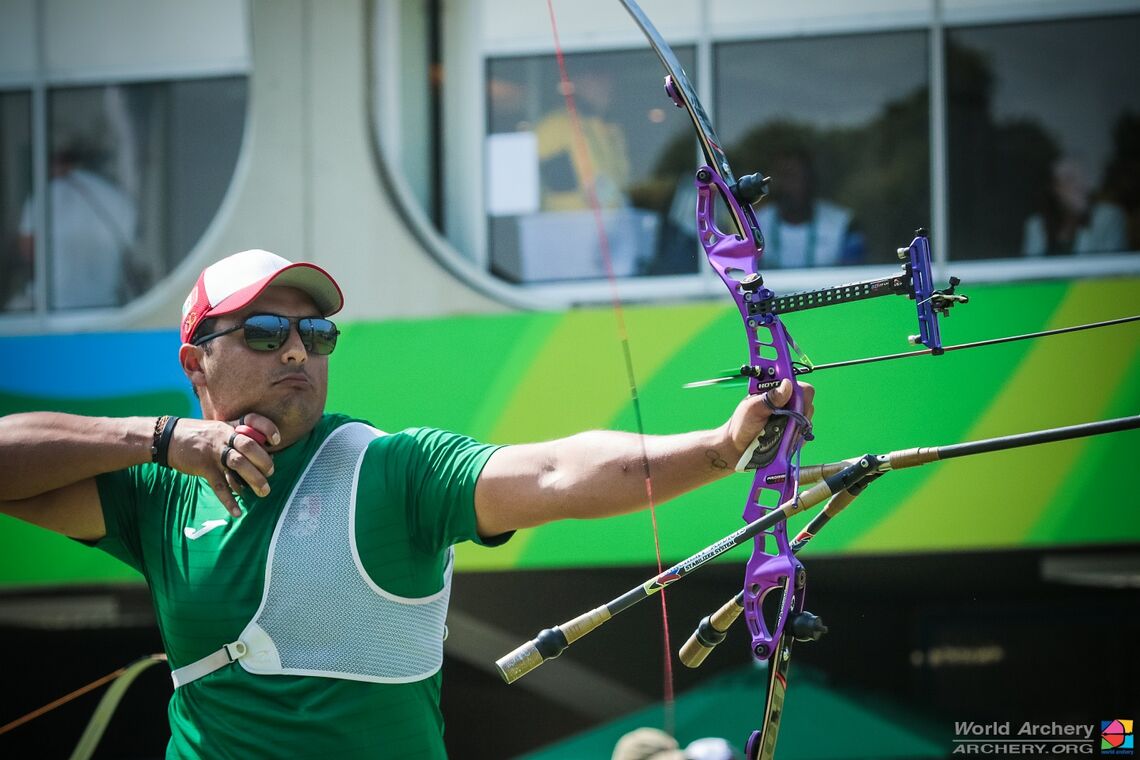
Luis Eduardo “Lalo” Velez was part of the Mexican men’s team that finished fourth at the Olympic Games in London in 2012.
At his second Games in a row, this time as a coach, Lalo was the man behind the line for Ernesto Boardman, who lost to Adrian Puentes from Cuba in the first round.
When things don’t go as expected, says Luis, the best thing a coach can do is give the archer time to assimilate the moment the best way he or she can.
“After giving them time, our mission is to help them get the balance back into their life, to help them do what they want afterwards, always guiding them in the best possible way we can. As coaches we are their support and they should know that, they should know they can trust us,” said Lalo.
Unconditional
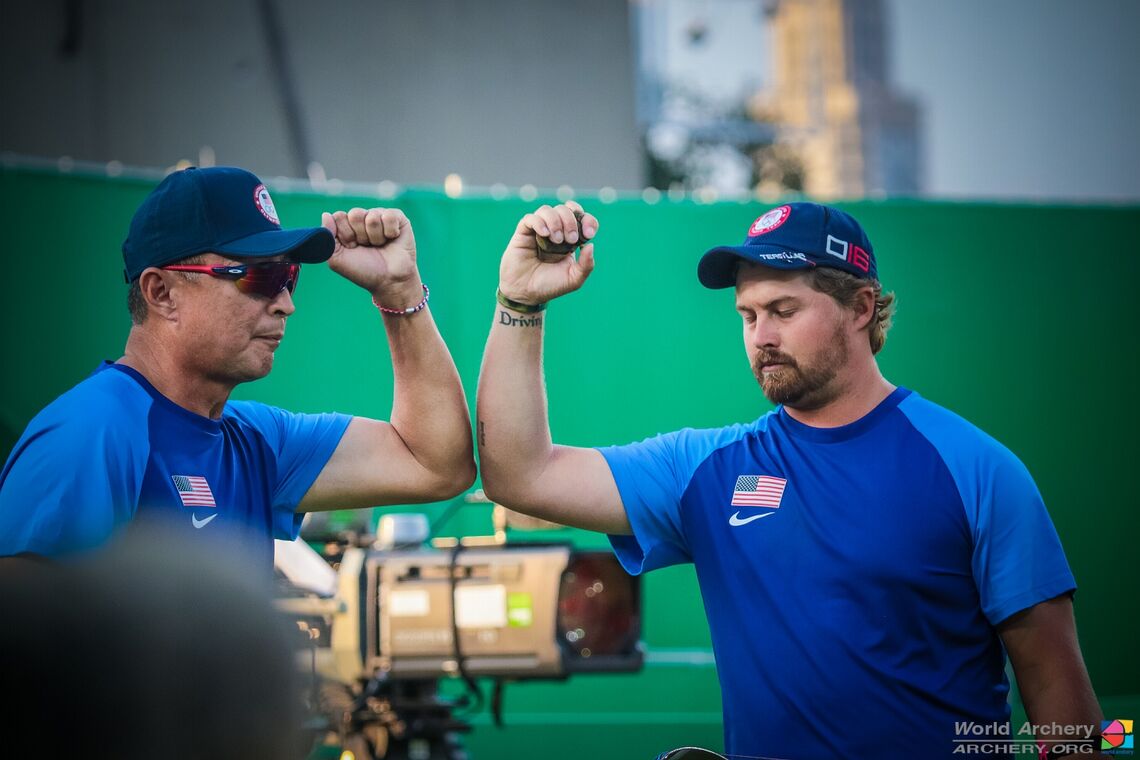
Two-time Olympic coach Mel Nichols supported team USA in the Sambodromo, together with head coach Kisik Lee.
With his friendly nature shining, Mel said that all archers competing in Rio – the 64 men and 64 women – were already winners.
“They are at the Olympics Games, and that’s how we look at it. Everything else is more of a bonus,” says Mel. The USA team had a heart-break during the individual match of the second round when Brady Ellison and Jake Kaminski shot against each other, and Brady won.
“That plays the hardest thing for a coach out there, because we are going to get knocked out.”
Brady had to shoot against another teammate in the third round, and proceeded to put Zack Garrett out of the Olympic competition.
“No matter the results or whatever the situation, we are always just there for archers. During the Games, we’re going to wake up early, check the weather, that everything is ready, make sure that everyone is down for breakfast or gets something to eat, that they get on the bus on time, train and compete,” said Mel.
reward
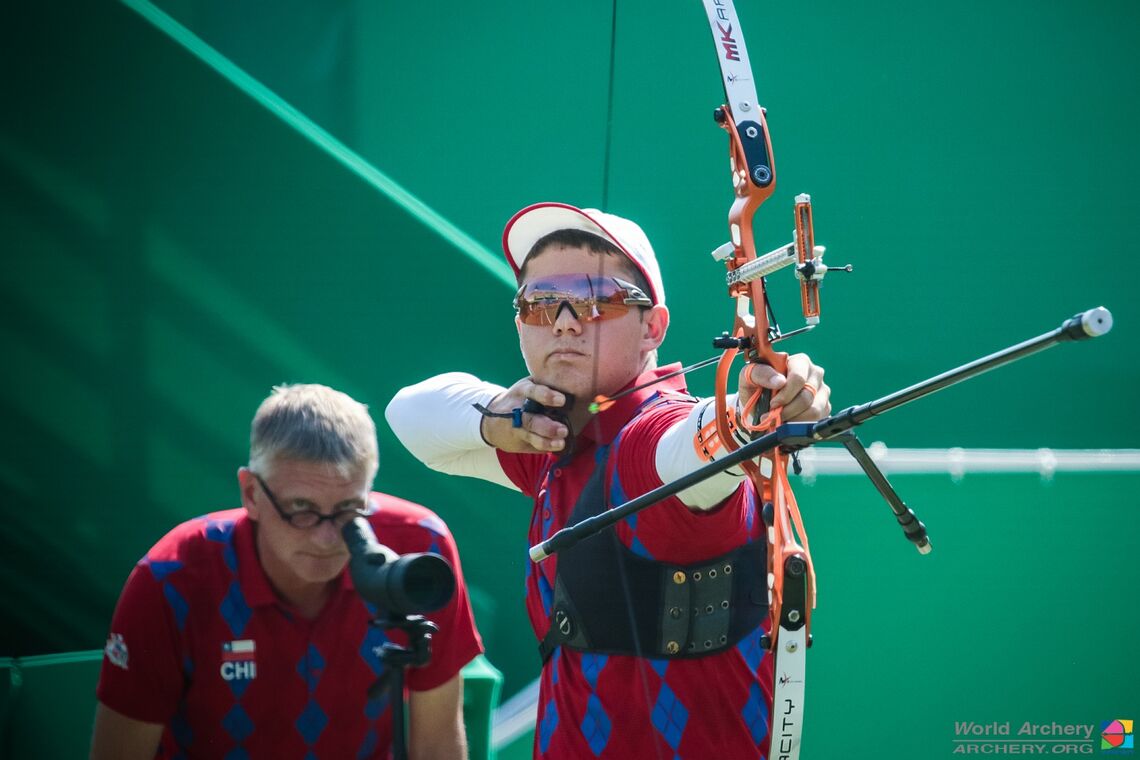
There’s nothing more gratifying for both an archer and a coach to see that hard work pays-off.
“As a coach I see these Games as a great and memorable experience because my athlete, Ricardo Soto, shot a new national record during his qualification round,” said Martin Frederick, head coach of Chile.
“It’s nice that he achieved it here because it’s not a small competition, it’s the Olympics! This is the right moment, when you see why you worked and trained so hard for years.”
Ricardo, the youngest athlete competing in archery at the 2016 Olympics, won his first two individual matches to get into the last 16, making history for his country. He finished ninth overall.


